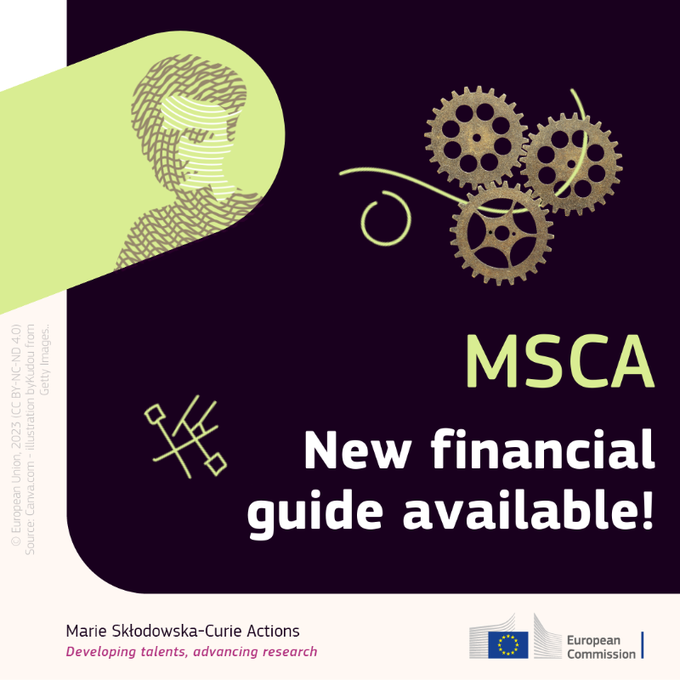
MSCA Financial Guide Published
MSCA Financial Guide Published https://opusproject.eu/wp-content/uploads/2024/04/GKy-ma_WoAAjrw6.png 680 680 Open and Universal Science (OPUS) Project Open and Universal Science (OPUS) Project https://opusproject.eu/wp-content/uploads/2024/04/GKy-ma_WoAAjrw6.pngThe Marie Skłodowska-Curie Actions (MSCA) stand as a beacon of opportunity for researchers across Europe, offering avenues for training, innovation, and collaboration. With its varied programs tailored to different career stages, MSCA has become instrumental in fostering a vibrant research landscape. In this guide, we delve into the intricacies of MSCA grants, shedding light on their implementation and the roles of various participants.
1. Introduction: MSCA Grants
MSCA encompasses four main types of actions, each designed to cater to specific objectives:
- Doctoral Networks (DN): Multi-beneficiary actions aimed at nurturing innovative doctoral candidates and enhancing doctoral training excellence in Europe.
- Postdoctoral Fellowships (PF): Mono-beneficiary actions focused on empowering researchers with PhDs to acquire advanced skills through international and interdisciplinary mobility.
- Staff Exchanges (SE): Multi-beneficiary initiatives fostering international collaboration and knowledge exchange across research and innovation domains.
- COFUND: Mono-beneficiary actions facilitating the co-financing of doctoral and postdoctoral programs at various levels to promote best practices in research training and mobility.
Managed by the European Research Executive Agency (REA), these actions operate under the Horizon Europe Unit Grants Model Grant Agreement (HE Unit MGA), streamlining funding mechanisms to prioritize research outputs and minimize administrative burdens.
2. Categories of Participants
MSCA projects engage diverse entities, each contributing uniquely to project implementation:
- Beneficiaries: Responsible for project execution, including recruitment, supervision of researchers, and program management.
- Associated Partners: Collaborators involved in project implementation without signing the grant agreement, contributing to tasks outlined in project proposals.
- Implementing Partners (specific to COFUND): Organizations receiving financial support from COFUND beneficiaries to execute doctoral or postdoctoral programs.
- Researchers/Staff: Individuals driving research activities, spanning all career stages and research domains.
3. Recruitment of Researchers and Secondment of Staff
MSCA actions prioritize researcher training, mobility, and career development, with specific guidelines tailored to each action:
- MSCA Doctoral Networks: Emphasize objective recruitment procedures and fair working conditions for researchers, with requirements for full-time employment contracts or equivalent arrangements.
- Part-time employment: Permitted under specific circumstances, such as personal or family reasons, subject to prior approval.
Building Bridges
The MSCA grants pave the way for groundbreaking research, fostering a dynamic ecosystem of collaboration, innovation, and knowledge exchange. By understanding the intricacies of these grants and the roles of different participants, researchers can unlock a world of opportunities to propel their careers and contribute to the advancement of science and society.
- Posted In:
- Open Science News




